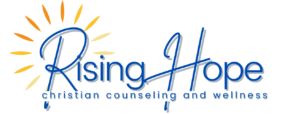Frequently Asked Questions about our counseling and coaching services.
What is professional counseling?
Essentailly, Professional Counseling is a partnership between the counselor and client. That is, counselors help clients identify goals and potential solutions to problems which cause emotional unrest; seek to improve communication and coping skills; build self-esteem; and promote healthy behavior and mental health.
INDIVIDUAL COUNSELING
Foundationally, individual counseling is for an individual to receive support and experiences growth during challenging time of life. In fact, individual counseling can help an people deal with many concerns in life such as anger, depression, anxiety, substance abuse, marriage and relationship challenges, parenting problems, school difficulties, career changes, etc.
COUPLES COUNSELING
Without a doubt, every couple experiences ups and downs in their relationship over time. These can range from basic concerns of stagnation to serious expressions of aggression. This is where therapy can make room for couples to work through and resolve conflicts and even heal wounds. Therefore, couples counseling can help couples slow down their negative spiral and reestablish realistic, healthier expectations and goals.
FAMILY COUNSELING
Another form of counseling is family counseling. Family counseling is often sought due to a life change or stress negatively affecting one or all areas of family closeness, family structure (rules and roles) or communication style. Due to these needs, this mode of counseling can take a variety of forms, including having the entire family together for several sessions.
Some common issues addressed in family counseling might include: concerns around parenting, sibling conflict, loss of family members, new members entering the family, dealing with a major move, or a general change affecting the family system.
What is pastoral counseling?
Pastoral counseling is a practice that integrates both psychological and theological concepts into its framework, is not unlike other modes of talk therapy when it comes to the therapeutic process. But, what sets it apart is the way faith, spirituality, and theology are incorporated into the model.
Due to the connection between our soul and our bodies, pastoral counselors are trained to incorporate spiritual exploration with support to foster wholeness, healing, and growth in those who are seeking help.
Specifically, pastoral counselors utilize resources such as prayer, scripture study, and participation in the congregational community to help guide people on their journey toward healing, transformation, and greater connection to others.
Further, while pastoral counseling are able to provide specialized treatment to clients, they can also serve to meet client needs for more general counseling needs as a versatile mode of therapy. As a result, pastoral counselors are uniquely positioned to offer mental health support while also providing spiritual guidance from a faith-based perspective.
In addition, pastoral counseling can offer support to those seeking family, relationship, or premarital counseling. Further, it may be helpful to individuals working through or challenged by any of the following situations in individual or groups settings:
- Spiritual assessment
- Grief and loss
- Issues related to chronic or terminal illness
- Conflicts around spiritual beliefs
- Mental health issues directly linked to religious beliefs or doctrine
- Crises of faith
- Reintegration into community life after institutionalization or incarceration
- Adjusting to mental health support when wary of the system
What is professional coaching?
We describe professional coaching as a series of guided conversations that enable the “coachee” to discover and apply professional, personal, or family solutions to move towards the coachee’s goals. These solutions, because they are central to the “coachee,” are more likely to succeed and last than solutions suggested by others.
COACHING IS NOT…
Conflict Resolution,
Giving advice, being the expert or having the answers,
Counseling,
Fixing people,
Doing it for them,
Pushing people to work harder,
A close, personal relationship, or
A replacement for supervision or management.
BUT COACHING IS…
Listening in a powerful way,
Asking questions that cause new thinking and possible actions,
A relationship to foster critical thinking,
An opportunity to discover limitations in the other person’s speaking,
A place where people can think out loud,
Designed to help get the most value and learning from an experience,
Acknowledging people for who they are and what they produce,
Generating possibility and keeping it alive,
A way of allowing people to change how they relate to something,
Where clients can experiment and play with ideas,
Confidential,
A supportive relationship,
A structure for making things happen.

